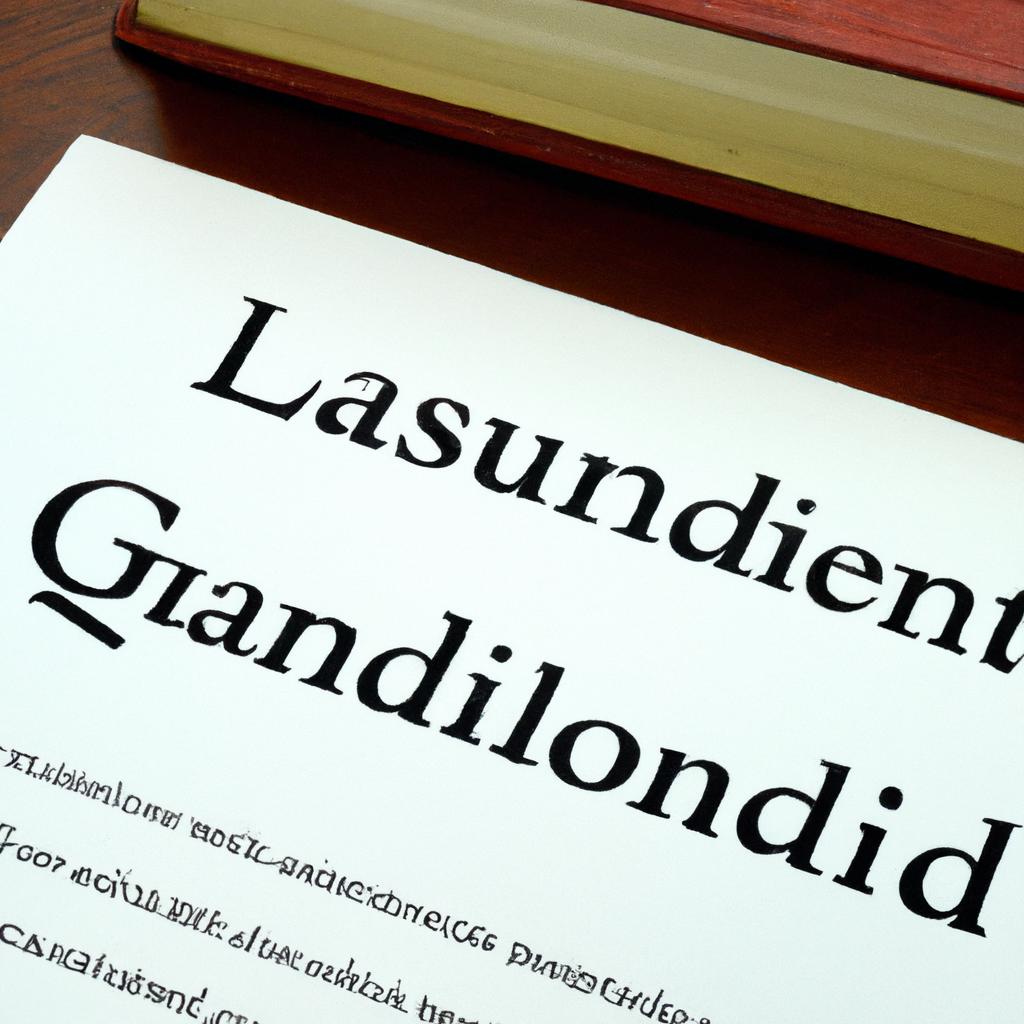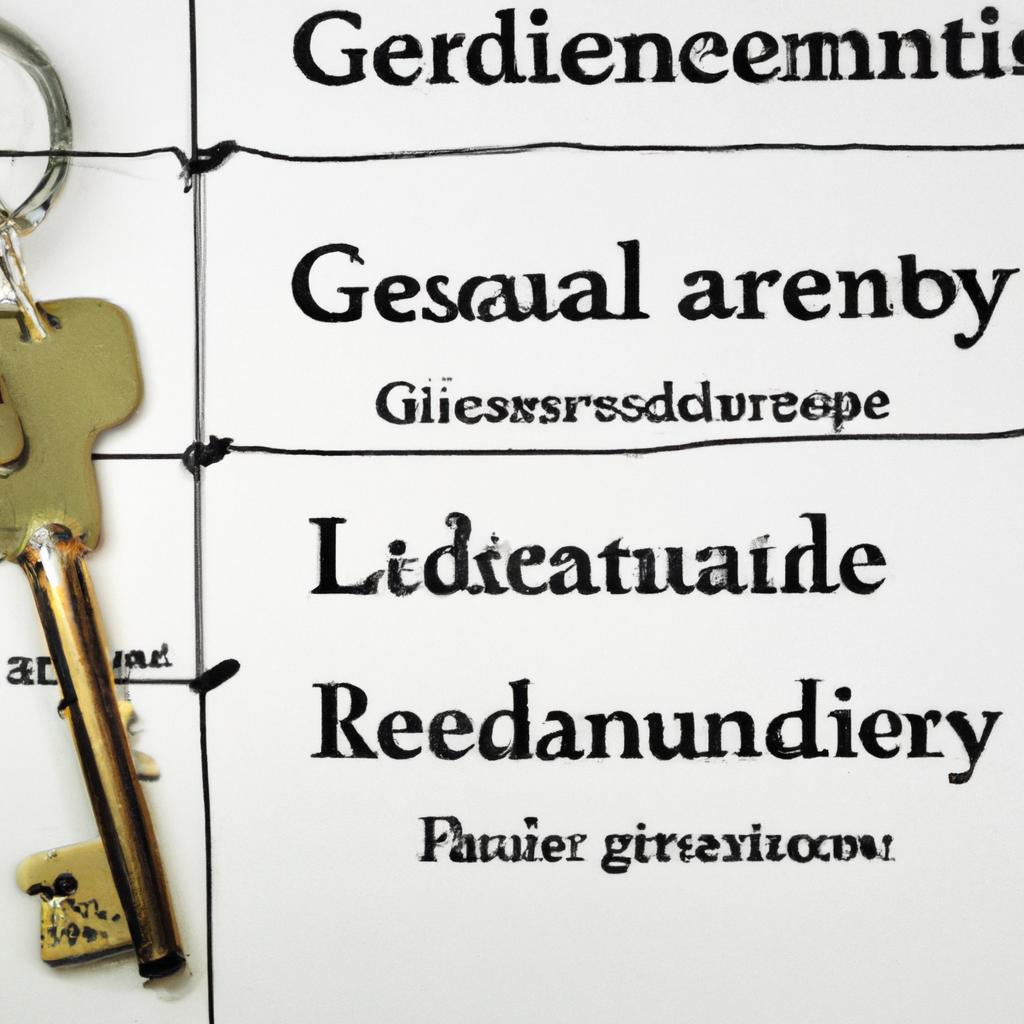In the realm of family law, the terms “legal guardianship” and “custody” are often used interchangeably, creating confusion among individuals seeking to protect their loved ones’ best interests. As seasoned legal professionals at Morgan Legal Group, based in the bustling metropolis of New York City, we understand the intricacies of these nuanced concepts. In this article, we will dissect the differences between legal guardianship and custody, shed light on their distinct roles and responsibilities, and provide clarity for those navigating the complex legal landscape of familial relationships. Join us as we unravel the intricacies of legal guardianship versus custody.
Understanding the Distinctions between Legal Guardianship and Custody
Legal guardianship and custody are often mistakenly thought to be the same thing, but in reality, they are distinct legal concepts with different implications and responsibilities. Understanding the differences between the two is crucial for anyone involved in a legal dispute or situation concerning the care of a minor.
Legal guardianship grants an individual the legal authority to make decisions on behalf of a minor, while custody typically refers to the physical care and supervision of the child. Here are some key distinctions between legal guardianship and custody:
- Decision-making authority: Guardians have the legal right to make important decisions for the child, such as medical care, education, and religious upbringing.
- Duration of responsibility: Guardianship can last until the child reaches adulthood, while custody can be temporary or permanent depending on the circumstances.
- Financial responsibility: Guardians may be responsible for the financial well-being of the child, while custodial parents typically bear the financial burden of raising the child.

Key Differences in Rights and Responsibilities of Legal Guardianship versus Custody
In legal terms, the rights and responsibilities of legal guardianship and custody may seem similar, but they actually have key differences that are important to understand. Legal guardianship involves a court appointing a person to make decisions for a minor or incapacitated adult, while custody typically refers to a parent’s right to make decisions for their child. Here are some key differences between the two:
<ul>
<li><strong>Decision-making authority:</strong> Legal guardians have the legal right to make decisions on behalf of the individual under their care, while custody typically grants decision-making authority to the parent.</li>
<li><strong>Duration:</strong> Legal guardianship can be temporary or permanent, depending on the court order, whereas custody is usually awarded to a parent until the child reaches adulthood.</li>
<li><strong>Financial responsibilities:</strong> Legal guardians may be responsible for the financial support of the individual under their care, while parents with custody are typically responsible for their child's financial needs.</li>
</ul>
It is crucial to consult with a legal professional to understand the specific rights and responsibilities associated with legal guardianship and custody in your situation. At Morgan Legal Group, our team of experienced attorneys in New York City can provide guidance on estate planning, probate, elder law, Wills, trusts, and other legal matters related to guardianship and custody. Contact us today for personalized legal assistance tailored to your unique needs.

Navigating the Complexities of Legal Guardianship and Custody in Family Law Cases
In family law cases, the distinction between legal guardianship and custody can often be confusing. While both involve the care of a child, there are key differences that must be understood in order to navigate the complexities of these legal matters effectively.
Legal guardianship is a legal status that grants an individual the right to make decisions on behalf of a child, including decisions about their education, healthcare, and overall well-being. It is typically granted by a court and can be temporary or permanent. On the other hand, custody refers to the physical and legal care of a child, including the right to make decisions about their daily life and upbringing. It can be shared between parents (joint custody) or granted solely to one parent (sole custody). Understanding the nuances of these terms is essential in ensuring the best interests of the child are upheld in family law cases.
| Legal Guardianship | Custody |
|---|---|
| Decision-making authority | Physical and legal care |
| Can be temporary or permanent | Can be shared or sole |
| Granted by court | Can be shared between parents or granted to one parent |

Best Practices for Determining Legal Guardianship versus Custody Arrangements
When determining legal guardianship versus custody arrangements, it is essential to understand that these are distinct legal concepts with different implications. Legal guardianship involves granting someone the legal authority to make decisions on behalf of a minor child, while custody refers to physical custody and care of the child. It is crucial to carefully consider the best interests of the child when deciding between legal guardianship and custody arrangements.
Some best practices to consider when determining legal guardianship versus custody arrangements include:
- Evaluate the child’s needs and best interests: Consider the physical, emotional, and financial well-being of the child when making decisions about legal guardianship or custody.
- Consult with a legal professional: Seek guidance from an experienced attorney who specializes in family law to ensure that you fully understand the legal implications of your decisions.
Q&A
Q: Is legal guardianship the same as custody?
A: The concepts of legal guardianship and custody both involve caring for the well-being of a minor, but they differ in various ways.
Q: What is legal guardianship?
A: Legal guardianship is a legal relationship where a person assumes responsibility for the care, custody, and control of a minor child. This can be granted by the court or through a legal document such as a will.
Q: How does legal guardianship differ from custody?
A: While legal guardianship involves taking care of a child’s daily needs, custody typically refers to the physical possession of a child. Custody arrangements are often made during divorce or separation proceedings.
Q: Can someone have legal guardianship without having custody?
A: Yes, it is possible for someone to have legal guardianship without having custody if the child’s parents still have physical possession of the child. Legal guardianship may be granted in situations where the child’s parents are unable to care for them.
Q: Are there different types of legal guardianship?
A: Yes, there are different types of legal guardianship, including temporary guardianship, permanent guardianship, and limited guardianship. The specific type of guardianship granted depends on the circumstances and needs of the child.
Q: What factors are considered when granting legal guardianship or custody?
A: When determining legal guardianship or custody, the court considers various factors such as the best interests of the child, the ability of the guardian or custodial parent to provide a stable and safe environment, and the wishes of the child, if they are old enough to express them.
Q: How can someone obtain legal guardianship or custody?
A: To obtain legal guardianship or custody, one typically must file a petition with the court and attend a hearing where a judge will consider the evidence and make a decision based on the best interests of the child. It is recommended to seek legal counsel to navigate the process effectively.
The Conclusion
In conclusion, legal guardianship and custody may seem similar on the surface, but they actually serve different purposes in the realm of child and adult care. While custody typically refers to the physical care and supervision of a child, legal guardianship involves making important decisions on behalf of a minor or incompetent adult. Understanding the distinctions between the two can help individuals navigate the complexities of family law and ensure the best interests of those under their care are met. So next time you find yourself pondering the differences between legal guardianship and custody, remember that it’s not just a matter of semantics, but rather a crucial distinction with legal implications. Thank you for reading!

